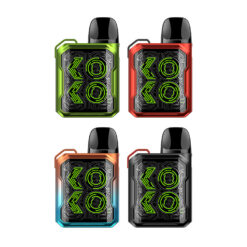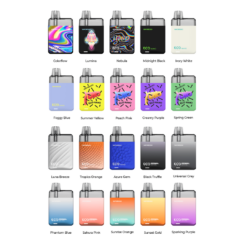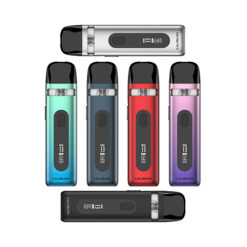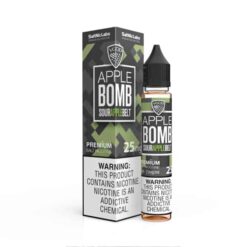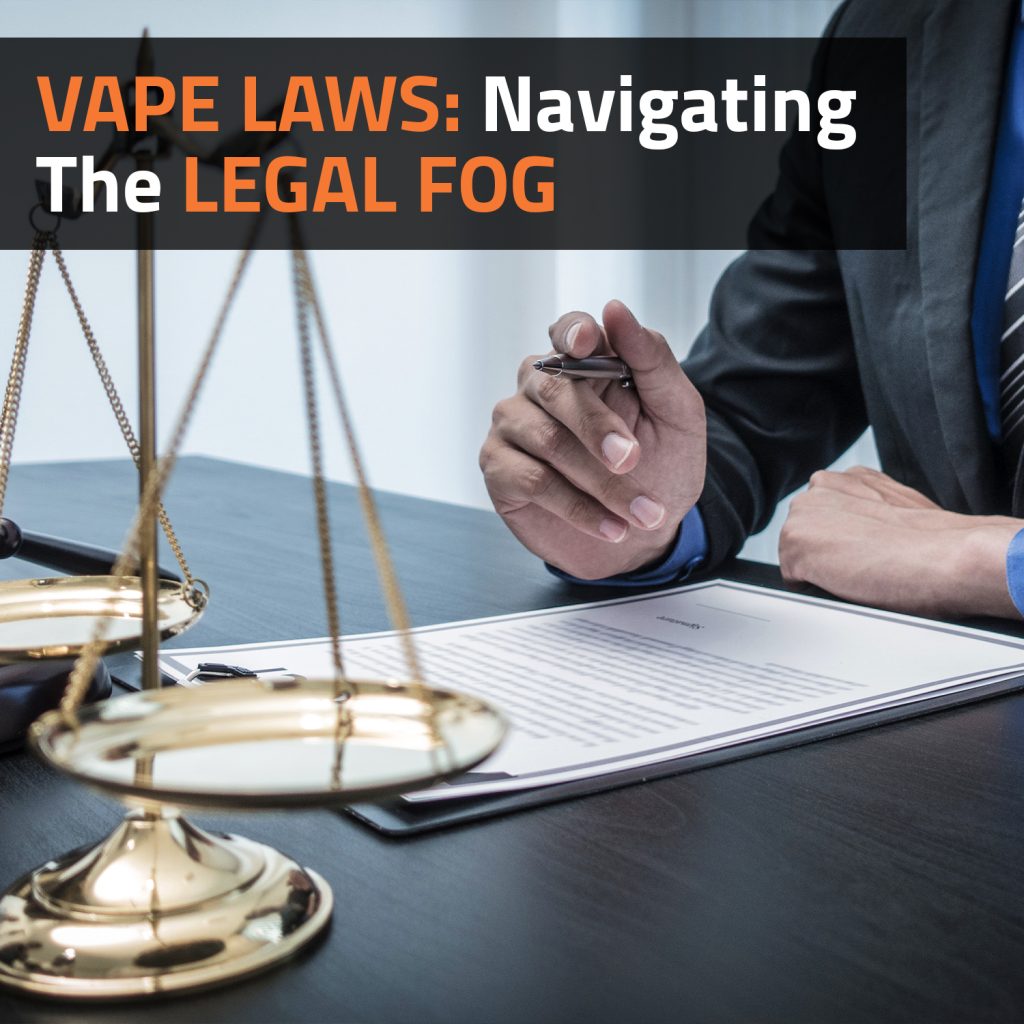Vape laws in South Africa have become increasingly important as vaping gains popularity among smokers and non-smokers alike. These laws aim to strike a balance between offering a less harmful alternative to traditional smoking and safeguarding public health. In this comprehensive article, we’ll explore the intricate details of vape laws in South Africa, covering various aspects, from age restrictions and legalities to product regulations and taxation. Understanding these regulations is crucial for both vapers and businesses operating in the vaping industry.
Vaping Basics
Vaping has gained popularity among smokers for several reasons. Firstly, it provides a smoking alternative that eliminates the harmful effects of combustion and the thousands of toxic chemicals found in tobacco smoke. Secondly, it allows users to control their nicotine intake, with e-liquids available in various nicotine strengths. Additionally, vaping offers a wide range of flavours, making it an appealing option for those looking to explore different tastes.
Are All Vaping Products The Same?
No, vaping products vary in terms of design, features, and quality. There are basic disposable e-cigarettes and more advanced devices designed for experienced vapers. E-liquids come in various flavours and nicotine strengths, catering to different preferences. It’s important to note that not all vaping products are of the same quality, and consumers should choose reputable brands to ensure safety and satisfaction.
-
UWELL Caliburn GK2 Kit
R495.00 -
Vaporesso ECO NANO Kit
R295.00 -
Smok Nord 50W Kit
R550.00 -
UWELL Caliburn X Pod System
R625.00
Health Concerns And Public Perception
While vaping is considered less harmful than smoking traditional cigarettes, it is not without risks. Some potential health concerns include respiratory issues, nicotine addiction, and the long-term effects of inhaling e-liquid aerosol. Additionally, there have been cases of severe lung injuries linked to vaping, often associated with the use of unregulated or illicit vaping products.
How Has Public Perception Of Vaping Evolved?
Public perception of vaping has shifted over the years. Initially seen as a smoking cessation tool, vaping gained popularity as a trendy pastime. However, concerns about youth vaping and the potential health risks have led to increased scrutiny. While some view vaping as a harm reduction strategy, others are calling for stricter regulations and public vaping bans.
What Role Do Vape Laws Play In Addressing Health Concerns?
Vape laws play a crucial role in addressing health concerns by regulating the sale, marketing, and use of vaping products. These laws aim to protect consumers, particularly young people, from the potential risks associated with vaping. They also provide a framework for monitoring and addressing emerging health issues related to vaping.
Age Restrictions
In South Africa, the legal age for purchasing and using vaping products is 18 years old. This age restriction is in place to prevent minors from accessing and using e-cigarettes and related products.
Age restrictions are enforced through various means, including:
- Identification checks at point of sale: Retailers are required to verify the age of customers by checking their identification, such as a driving licence or ID card.
- Online age verification: Online vape retailers must implement age verification systems to ensure that customers meet the legal age requirement.
- Penalties for non-compliance: Retailers found selling vaping products to minors can face fines and legal consequences.
Penalties for violating age restrictions can vary, but often include fines for retailers and potential legal consequences for individuals involved in selling vaping products to minors. These penalties serve as a deterrent to prevent underage access to vaping products.
Product Regulations
Vape products typically consist of the following components:
- Battery: Provides power to the device.
- Heating Element: Heats the e-liquid to produce vapour.
- Tank or Cartridge: Holds the e-liquid.
- E-Liquid: Contains nicotine, flavourings, and other chemicals.
- Mouthpiece: Used for inhaling the vapour.
These Vape products are subject to regulatory standards that vary by region. In South Africa, regulatory bodies may test vape products for quality and safety, ensuring they meet certain manufacturing standards. Manufacturers must comply with these regulations and provide evidence of product safety.
Some regions may impose restrictions on vape flavours, packaging, and advertising to mitigate potential health risks and prevent marketing to minors. These restrictions can include limits on the use of certain flavourings and the use of plain packaging to reduce the appeal of vaping to young people. Additionally, advertising may be regulated to prevent misleading claims and targeting of underage individuals.
Manufacturing Standards
Vape product manufacturers must adhere to various standards to ensure the safety and quality of their products. These standards may cover manufacturing processes, ingredient purity, labelling requirements, and packaging.
Regulatory bodies conduct inspections of manufacturing facilities to assess compliance with established standards. Facilities that meet these standards may receive certification, demonstrating their commitment to product safety and quality.
Non-compliance with manufacturing standards can result in penalties, including fines and legal actions against manufacturers. Additionally, products that do not meet safety and quality standards may be removed from the market, protecting consumers from potentially harmful products.
Retail And Online Sales
Vape products can be sold in physical stores, provided that the retailers adhere to the legal regulations and age restrictions. Many vape shops exist throughout South Africa, offering a wide range of vaping devices and e-liquids.
Online sales of vaping products are subject to the same age restrictions and regulations as physical sales. Online retailers must implement robust age verification systems and ensure compliance with all applicable laws.
Regulatory bodies and law enforcement agencies may conduct random inspections and monitor online platforms to ensure that retailers are complying with all relevant laws and regulations. Violations can lead to penalties and legal consequences.
Vape Taxes
Vape taxes in South Africa may vary depending on the region and the type of vaping product. These taxes are typically applied to the sale of e-liquids and may be calculated based on volume or price. The revenue generated from vape taxes is often allocated to public health initiatives and education programs.
These taxes can generate revenue for the government, which can be used to fund public health campaigns, research, and smoking cessation programs. However, the revenue generated may also be influenced by the prevalence of vaping and the size of the vaping market.
Vape taxes can also affect consumer behaviour by increasing the cost of vaping products. Higher prices may discourage some individuals from vaping or prompt them to seek cheaper alternatives. Additionally, taxes can impact the profitability of vape businesses, potentially influencing pricing strategies and product offerings.
Public Spaces And Vaping
Vaping regulations in South Africa typically prohibit vaping in enclosed public spaces, workplaces, and certain outdoor areas. However, the specifics of public vaping restrictions can vary by region.
Indoor vaping is generally prohibited in areas where smoking is banned. Outdoor restrictions may include areas like school grounds, public transportation stops, and outdoor dining areas. It’s essential to check local regulations to understand where vaping is permitted.
Violations of public vaping rules may result in fines or penalties, similar to smoking restrictions. Enforcement is typically carried out by relevant authorities, such as local health departments or law enforcement agencies.
Vape Bans And Restrictions
In South Africa, there have been discussions and proposals for vaping bans, particularly in indoor public spaces and specific areas. However, as of [current date], there is no nationwide ban on vaping. Bans and restrictions are generally determined at the regional or municipal level.
Bans on vaping are typically implemented to address public health concerns, protect non-smokers from secondhand aerosol exposure, and prevent the normalisation of vaping among young people. Decisions to implement bans are often made based on scientific evidence and public input.
These bans can have significant implications for both the vaping industry and consumers. Businesses may face economic challenges, and vapers may find it more difficult to access vaping products. However, bans are often introduced with the goal of promoting public health and reducing the prevalence of vaping.
Enforcement And Penalties
Vape laws in South Africa are enforced by various authorities, including local health departments, law enforcement agencies, and regulatory bodies such as the National Council Against Smoking (NCAS). These authorities have the power to conduct inspections, issue fines, and take legal action against violators.
Penalties for violating vape regulations can include fines, the suspension or revocation of licences for businesses, and legal consequences for individuals involved in illegal sales or non-compliance. Penalties are designed to deter violations and ensure compliance with the law.
Compliance with vape regulations is monitored through routine inspections, reports from concerned citizens, and cooperation between relevant authorities. Individuals and businesses can report suspected violations to the appropriate regulatory agencies, which may initiate investigations.
International Vape Regulations
Vape laws vary significantly from one country to another. Some countries have embraced vaping as a harm reduction tool, while others have implemented strict regulations or outright bans. These differences are often influenced by cultural attitudes towards smoking, public health priorities, and political decisions.
While there are no global standards for vaping regulation, international organisations such as the World Health Organisation (WHO) provide guidelines and recommendations for countries to consider when developing their own regulations. However, the implementation of these recommendations is at the discretion of each individual country.
International variations in vape laws can create challenges for travellers and businesses operating across borders. Vapers need to be aware of the vaping regulations in each country they visit to avoid legal issues, while manufacturers may face different compliance requirements when exporting their products.
Future Trends And Challenges
The future of vape regulations is likely to be influenced by ongoing research into the health effects of vaping, the prevalence of vaping among youth, and public health priorities. We can expect to see continued efforts to strike a balance between harm reduction and safeguarding public health.
Emerging technologies, such as heat-not-burn devices and novel nicotine delivery systems, may pose new challenges for regulators. As these technologies evolve, policymakers will need to adapt regulations to address potential risks and benefits.
Policymakers face challenges in regulating vaping effectively, including staying up-to-date with rapidly evolving products, balancing the interests of various stakeholders, and addressing the complex issue of youth vaping. Finding the right regulatory approach that balances harm reduction and public health remains a significant challenge.


